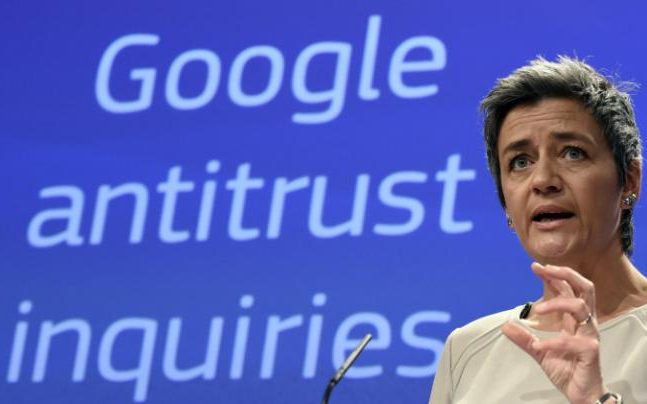Google May Face Another EU Monopoly Abuse Investigation
By 27 June 2016
Google may face a new EU claim that it is abusing its monopoly power, in the latest escalation of tensions between the internet giant and Brussels.
The European Commission has reportedly asked opponents of the search giant’s advertising practices to allow it to put their complaints to Google. This could pave the way for a formal statement of objections about Google’s lucrative advertising business.
Google, which makes most of its $75bn (£57bn) global revenue from advertising, has already been charged with abusing its dominance of mobile software and search to promote other services.

The commission recently re-opened a probe into whether the company had prevented or inhibited advertisers from using rivals’ services when using its own, and EU Competition Commissioner Margrethe Vestager said she wanted the process finished “within a reasonable timeframe”.
To build a case, the commission relies on confidential complaints from opponents of Google. Asking the complainants to allow the commission to put their grievances to Google is often a sign that it is preparing to issue a statement of objections against the company.
If Vestager does accuse Google of monopoly abuse, it would be the third such case in little more than a year. The commission has already charged the company with exploiting its advantage in search engines to promote its shopping services, and claimed that Android’s overwhelming market share in mobile software has been abused to push its search engine and Chrome web browser.

The EU has the power to fine companies up to 10pc of global revenue – more than $7bn in Google’s case. Any concessions from Google on advertising practices could have a bigger impact than those on search or Android, considering advertising is Google’s biggest direct source of revenue.
Google and the European Commission did not comment.
(25)


